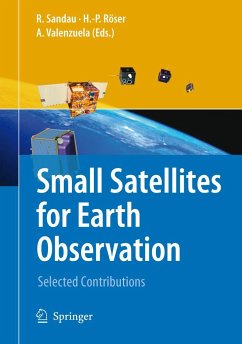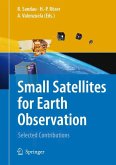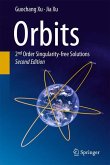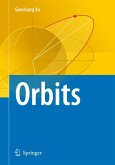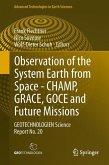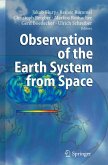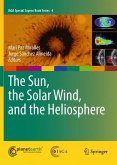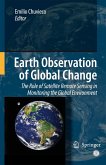The 6th IAA Symposium on Small Satellites for Earth Observation, initiated by the International Academy of Astronautics (IAA), was again hosted by DLR, the German Aerospace Center. The participation of scientists, engineers, and managers from 24 countries reflected the high interest in the use of small satellites for dedicated missions applied to Earth observation.
As in the previous symposia, the contributions showed that dedicated Earth observation missions cover a wide range of very different tasks. These missions provide increased opportunities for access to space and can be conducted relatively quickly and inexpensively. The spacecraft bus, the instruments, and the ground systems can be based either on optimized off-the-shelf systems with little or no requirements for new technology, or on new high-technology designs. Thus a new class of advanced small satellite missions, including autonomously-operating "intelligent" satellites and satellite constellations can becreated, opening new fields of application for science and the public.
The symposium provided 11 sessions for oral presentations and one poster session. Furthermore, in our 6th Symposium the Student Prize Paper Competition has been continued. The student papers have been evaluated by distinguished judges selected from academia, industry and government, coming from four continents. The finalists presented their papers in the Student Conference session.
As in the previous symposia, the contributions showed that dedicated Earth observation missions cover a wide range of very different tasks. These missions provide increased opportunities for access to space and can be conducted relatively quickly and inexpensively. The spacecraft bus, the instruments, and the ground systems can be based either on optimized off-the-shelf systems with little or no requirements for new technology, or on new high-technology designs. Thus a new class of advanced small satellite missions, including autonomously-operating "intelligent" satellites and satellite constellations can becreated, opening new fields of application for science and the public.
The symposium provided 11 sessions for oral presentations and one poster session. Furthermore, in our 6th Symposium the Student Prize Paper Competition has been continued. The student papers have been evaluated by distinguished judges selected from academia, industry and government, coming from four continents. The finalists presented their papers in the Student Conference session.

